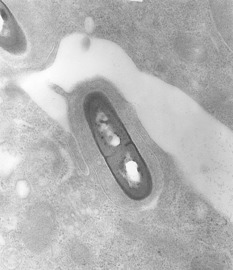mayoclinic.org
Always private
DuckDuckGo never tracks your searches.
Learn MoreYou can hide this reminder in Search Settings
All regions
Argentina
Australia
Austria
Belgium (fr)
Belgium (nl)
Brazil
Bulgaria
Canada (en)
Canada (fr)
Catalonia
Chile
China
Colombia
Croatia
Czech Republic
Denmark
Estonia
Finland
France
Germany
Greece
Hong Kong
Hungary
Iceland
India (en)
Indonesia (en)
Ireland
Israel (en)
Italy
Japan
Korea
Latvia
Lithuania
Malaysia (en)
Mexico
Netherlands
New Zealand
Norway
Pakistan (en)
Peru
Philippines (en)
Poland
Portugal
Romania
Russia
Saudi Arabia
Singapore
Slovakia
Slovenia
South Africa
Spain (ca)
Spain (es)
Sweden
Switzerland (de)
Switzerland (fr)
Taiwan
Thailand (en)
Turkey
Ukraine
United Kingdom
US (English)
US (Spanish)
Vietnam (en)
Safe search: moderate
Strict
Moderate
Off
Any time
- Was this helpful?
- Listeria infection is a serious foodborne illness that can affect pregnant women, older adults and people with weak immune systems. Learn how to recognize the signs and symptoms, what foods to avoid and how to prevent complications.
- News for Listeria
cdc.gov
Aug 2, 2024Learn about Listeria, a rare but serious bacteria that can contaminate many foods and cause illness. Find out the symptoms, people at risk, prevention tips, diagnosis, treatment, and outbreak information from CDC.en.wikipedia.org
Listeria is a genus of 28 species of rod-shaped, Gram-positive bacteria that can cause listeriosis, a rare but serious infection in humans. Learn about the characteristics, classification, and sources of Listeria, as well as the history and treatment of listeriosis.my.clevelandclinic.org
Listeriosis is a foodborne illness. The germ Listeria monocytogenes causes listeriosis. Listeria monocytogenes is commonly found in nature, especially in soil, groundwater, rotting vegetation and animal feces (poop).cbsnews.com
Oct 25, 2024Learn why listeria recalls are more frequent and how to avoid this serious foodborne illness. Find out what foods are high risk, how to cook or reheat them, and what symptoms to look for.Author:Sara Moniuszkowho.int
Listeriosis is caused by the bacterium Listeria monocytogenes, which can contaminate foods and survive at low temperatures. It affects mainly pregnant women, the elderly and immunocompromised people, and can cause severe symptoms and death.fda.gov
Food and Drug Administration (.gov)
https://www.fda.gov › food › foodborne-pathogens › listeria-listeriosis
Learn about Listeria monocytogenes, a bacteria that can cause listeriosis, a serious illness that can be fatal for some people. Find out the symptoms, at-risk groups, foods linked to outbreaks, and how to prevent listeriosis at home and in restaurants.healthline.com
Listeria infection, or listeriosis, is a serious bacterial illness that can affect anyone, but especially pregnant people and newborns. Learn about the symptoms, causes, risk factors, complications, and prevention of listeriosis from this comprehensive guide.cdc.gov
Aug 12, 2024Learn how Listeria germs can contaminate food and cause infections in humans. Find out which foods are more likely to be contaminated and how to prevent Listeria outbreaks.en.wikipedia.org
Listeriosis is a bacterial infection most commonly caused by Listeria monocytogenes, [1] although L. ivanovii and L. grayi have been reported in certain cases. Listeriosis can cause severe illness, including severe sepsis, meningitis, or encephalitis, sometimes resulting in lifelong harm and even death.Those at risk of severe illness are the elderly, fetuses, newborns, and those who are ...Can’t find what you’re looking for?
Help us improve DuckDuckGo searches with your feedback
